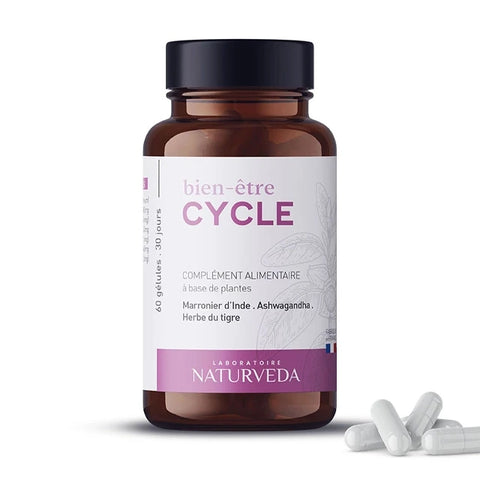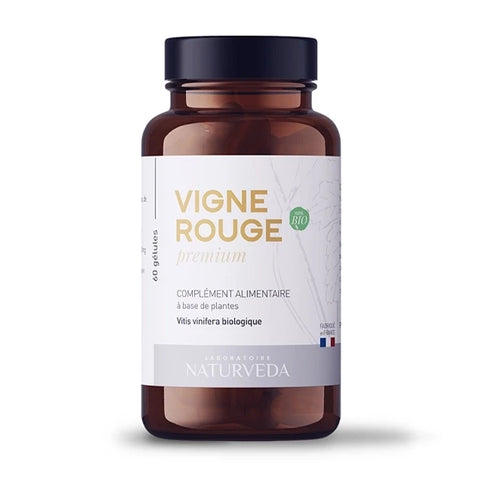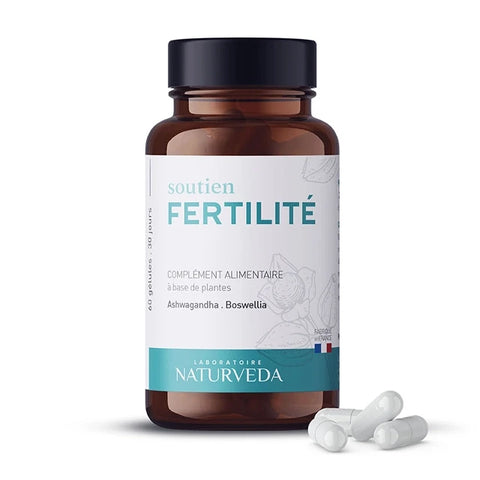7 products
Traitement de la Ménopause: Conseils pour une Vie Heureuse
La ménopause est une phase naturelle et inévitable du cycle de vie d'une femme. Elle se produit lorsque les ovaires d'une femme cessent de produire des œstrogènes, une hormone qui contrôle le cycle menstruel. Lorsque cela se produit, une femme n'est plus en mesure de concevoir naturellement, il s'agit de la fin de la période de fertilité. Ça commence généralement entre 45 et 55 ans, mais peut varier considérablement d'une femme à l'autre. Le processus peut durer plusieurs années, pendant lesquelles une femme peut éprouver une variété de symptômes, y compris des bouffées de chaleur, des sueurs nocturnes, des changements d'humeur, de la fatigue et des problèmes de sommeil.
La ménopause est généralement confirmée lorsque une femme n'a pas eu de période menstruelle pendant 12 mois consécutifs. Cependant, il est important de noter que la ménopause peut également être induite par certaines interventions chirurgicales, comme l'ablation des ovaires, ou par des traitements médicaux, tels que la chimiothérapie. Ce n'est pas une maladie ou un trouble, mais une transition naturelle dans la vie d'une femme. Cependant, elle peut avoir un impact significatif sur la qualité de vie d'une femme et nécessite souvent un ajustement du mode de vie et parfois un traitement pour gérer les symptômes.
Comment la ménopause impacte-t-elle la santé mentale ?
Définir la ménopause comme une simple transition hormonale serait une sous-estimation. En réalité, ce changement significatif dans le corps d'une femme peut entraîner une cascade d'effets, dont certains peuvent perturber considérablement la santé mentale.
Cette phase de la vie peut être une période de vulnérabilité accrue pour le développement de troubles de l'humeur tels que la dépression ou l'anxiété. Les fluctuations hormonales, en particulier la diminution des œstrogènes, peuvent perturber l'équilibre chimique du cerveau qui régule les émotions. Cela peut entraîner des changements d'humeur, une irritabilité accrue, une perte de concentration et même des sentiments de tristesse et de désespoir.
Il faut noter que tout le monde ne sera pas affecté de la même façon et que certaines femmes traversent cette transition sans problème de santé mentale majeur. Cependant, si vous ou une personne de votre entourage commence à montrer des signes de détresse mentale, il est important de consulter un professionnel de la santé. Il existe de nombreuses stratégies pour aider à gérer ces symptômes et à maintenir une bonne qualité de vie pendant la ménopause.
Comment peut-on vivre sereinement avec la ménopause ?
Vivre avec la ménopause peut être un défi, mais il est tout à fait possible de naviguer avec sérénité à travers cette nouvelle étape de votre vie. Il est important d'aborder cette période avec une attitude ouverte et positive. Elargissez vos connaissances, comprenez bien ce qu'est la ménopause et ce qu'elle implique. De cette façon, vous pouvez anticiper et gérer les symptômes de manière efficace.
Adoptez un mode de vie sain. Vos choix alimentaires, par exemple, ont un impact directe sur les symptômes de la ménopause. Optez pour une alimentation équilibrée qui est riche en fruits, légumes et grains entiers et pauvre en sucre et en graisses saturées. A tout cela, ajoutez une activité physique régulière. Non seulement l'exercice vous aide à contrôler les bouffées de chaleur, mais il contribue aussi à votre bien-être général.
La ménopause est également le moment de prendre soin de votre santé mentale. Des pratiques comme la méditation ou le yoga peuvent vous aider à gérer le stress et l'anxiété qui peuvent survenir lors de cette transition. N'hésitez pas non plus à chercher du soutien. Les échanges avec d'autres femmes qui traversent la même expérience peuvent être d'un grand réconfort.
Enfin, n'oublions pas que chaque femme est unique et vit la ménopause à sa façon. Il est donc important de consulter un professionnel de santé si les symptômes deviennent trop difficiles à gérer. Des traitements naturels ou hormonaux peuvent être proposés pour soulager les symptômes.
Vivre avec la ménopause, c'est aussi accepter et embrasser le changement. Il ne s'agit pas d'une fin, mais d'un nouveau départ. Alors, même si c'est un moment de transition, rappelez-vous que la ménopause est aussi l'occasion de découvrir une nouvelle vous.
Existe-t-il des remèdes naturels pour soulager les symptômes de la ménopause ?
La ménopause, bien qu'elle soit une étape naturelle et inévitable dans la vie de chaque femme, peut parfois être une période difficile à traverser. Il existe cependant des méthodes naturelles et des remèdes efficaces qui peuvent aider à soulager les symptômes de la ménopause. Par exemple, l'introduction dans votre alimentation d'aliments riches en phytoestrogènes - comme le soja et les graines de lin – peut contribuer à équilibrer les niveaux hormonaux fluctuants que l'on rencontre couramment pendant cette période.
Nous ne saurions trop insister sur l'importance de l'exercice régulier. Il joue un rôle crucial dans le bien-être général et peut même contribuer à atténuer certains symptômes de la ménopause. Par exemple, l'exercice peut réduire la fréquence et l'intensité des bouffées de chaleur, un phénomène commun pendant cette phase de la vie. L'idée n'est pas de vous transformer en athlète de haut niveau, mais simplement d'insérer de manière ciblée des activités physiques que vous appréciez dans votre vie quotidienne. Cela pourrait être une promenade tranquille, une nage rafraîchissante ou une balade à vélo. Ces actions, qui pourraient sembler modestes, peuvent favoriser une sensation générale de bien-être et aider grandement à naviguer plus sereinement à travers le processus de la ménopause.
Lorsqu'il s'agit de gérer les symptômes de la ménopause, les remèdes naturels peuvent jouer un rôle essentiel. Par exemple, certaines plantes médicinales, en particulier l'actée à grappes noires, sont souvent préconisées en raison de leur potentiel à contrer plusieurs symptômes désagréables associés à cette phase de la vie. Grâce à leurs propriétés hormonales et anti-inflammatoires, ces plantes sont capables de rétablir un certain équilibre dans votre corps et alléger ainsi les manifestations parfois éprouvantes de la ménopause.
Le sommeil peut aussi être affecté pendant la ménopause. Des problèmes tels que l'insomnie, les sueurs nocturnes et les bouffées de chaleur peuvent souvent perturber le sommeil, entraînant une fatigue et un manque d'énergie pendant la journée. Il est important de suivre une routine de sommeil régulière et de créer un environnement propice au repos. L'utilisation de remèdes naturels, tels que l'aromathérapie, le yoga et certaines tisanes relaxantes, comme la camomille ou la valériane, peut également aider à améliorer la qualité du sommeil. Néanmoins, une consultation médicale reste indispensable si les troubles persistent.
En plus des remèdes naturels que vous avez déjà découverts, les compléments alimentaires et les plantes peuvent vous aider à soulager les symptômes de la ménopause. Pensés pour répondre directement à vos besoins spécifiques pendant cette période de transition, ils peuvent vous apporter une aide précieuse.
Prenez par exemple le calcium, la vitamine D et les vitamines du groupe B. Ces nutriments puissants jouent des rôles vitaux dans différents aspects de notre bien-être. Le calcium, par exemple, aide à prévenir l'ostéoporose, une maladie osseuse que l'on retrouve fréquemment chez les femmes ménopausées. La vitamine D contribue également à maintenir des os en bonne santé, tout en assurant un bon fonctionnement du système immunitaire. Les vitamines du groupe B, quant à elles, sont connues pour leur capacité à réduire la fatigue, un symptôme fréquemment ressenti lors de la ménopause.
Penchez-vous maintenant sur le maronnier d'Inde, célèbre pour ses bienfaits sur la circulation sanguine. Cette plante est appréciée pour sa capacité à atténuer les sensations de jambes lourdes et gonflées, un problème courant chez les femmes en période de ménopause. Le maronnier d'Inde favorise une bonne santé vasculaire, ce qui peut également aider à prévenir la formation de varices.
Parlons ensuite de l'ashwagandha, une plante médicinale ayurvédique utilisée depuis des milliers d'années. Il est connu pour ses propriétés adaptogènes, ce qui signifie qu'il peut aider l'organisme à gérer le stress. Pour les femmes en ménopause, l'ashwagandha peut aider à gérer l'anxiété et l'insomnie, des symptômes fréquents à cette période de la vie.
Un complement alimentaire de Naturveda combine ces deux plantes merveilleuses. C'est le complément alimentaire Bien-Être Cycle. Conçu expressément pour soutenir le confort féminin et aider à réguler le cycle menstruel, ce complément est une réelle bénédiction pour de nombreuses femmes.
Issu de l'expertise ayurvédique, le complément alimentaire Bien-Être Cycle est composé de plantes riches en principes actifs. Il offre un soutien optimal aux femmes souffrant de troubles menstruels ou passant par le processus de la ménopause. Ainsi, il contribue à atténuer les maux et les nuances inconfortables liés à ces étapes naturelles, mais parfois éprouvantes de la vie d'une femme.
En résumé, si vous cherchez un soutien naturel pour surmonter les symptômes de la ménopause, de la préménopause, de l'endométriose et fertilité, ou pour améliorer votre confort pendant le cycle menstruel, le complément alimentaire Naturveda Bien-Être Cycle pourrait être une option à considérer. Engager vous dans un voyage de bien-être avec des solutions naturelles vraiment bénéfiques pour votre santé.
La reine des prés, également connue sous le nom de spiraea ulmaria, est une autre plante ayant des propriétés bénéfiques pour la ménopause. Elle est réputée pour ses effets apaisants sur les maux de tête et les douleurs articulaires, affections courantes pendant la ménopause.
Dans les compléments alimentaires de Naturveda, la reine des prés bio joue un rôle crucial dans le confort féminin. Utilisée depuis des générations pour soulager divers maux féminins, cette plante miraculeuse est particulièrement efficace pour combattre les symptômes associés au cycle menstruel et aux regles douloureuses. Avec sa richesse en salicylates, aux propriétés anti-inflammatoires et analgésiques, elle agit comme un antidouleur puissant qui peut aider à soulager les crampes menstruelles et autres inconforts associés à cette période délicate du mois.
Mais ce n'est pas tout. En raison de ses propriétés diurétiques, la reine des prés bio est également d'une grande aide pour réduire les symptômes du syndrome prémenstruel (SPM). Des symptômes tels que les ballonnements et la rétention d’eau, qui peuvent gravement affecter votre confort, sont considérablement réduits grâce à ce complément alimentaire.
Donc, si vous traversez la ménopause et que vous recherchez des solutions naturelles pour soulager ses symptômes embarrassants et inconfortables, envisagez d'intégrer la reine des prés bio de Naturveda à votre routine quotidienne. Non seulement elle vous aidera à vous sentir plus à l'aise pendant cette transition, mais elle soutiendra aussi votre santé générale de manière remarquable.
Enfin, la vigne rouge est une autre plante à considérer. Reconnaissable à son feuillage d'un rouge éclatant à l'automne, elle est connue pour son action bénéfique sur les vaisseaux sanguins. La vigne rouge peut aider à lutter contre les sensations de jambes lourdes et les varices, souvent aggravées par la ménopause. De plus, elle possède des anti-oxydants qui peuvent contribuer à protéger votre corps contre les dommages causés par les radicaux libres.
Naturveda a mis au point un produit basé sur les bienfaits de la vigne rouge, dénommé "Vigne Rouge Bio". Les troubles circulatoires, qui sont courants chez les femmes notamment pendant la grossesse et certaines phases du cycle menstruel, sont ciblés par ce produit. Les effets bénéfiques de la vigne rouge sur la circulation sanguine et l'inflammation peuvent aider à soulager ces symptômes.
En plus de participer à la réduction de l'incidence des jambes lourdes et des varices, la "Vigne Rouge Bio" peut également avoir des effets bénéfiques sur le Syndrome Prémenstruel (SPM), selon certaines recherches préliminaires. Ce syndrome, caractérisé par l'apparition de divers symptômes avant les règles, peut en effet être atténué par la consommation régulière de vigne rouge.
De plus, des compléments contenant des phyto-œstrogènes, des composés naturels présents dans certaines plantes, ont été utilisés pour aider à gérer les bouffées de chaleur et d'autres symptômes inconfortables. Toutefois, il convient de noter que si certains compléments alimentaires peuvent aider, ils ne remplacent pas une alimentation diversifiée et équilibrée. Si vous envisagez de prendre des compléments alimentaires pendant la ménopause, voyez-le comme un ajout à un régime nutritionnel adéquat, et non comme votre principale stratégie.












